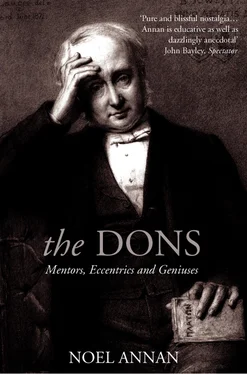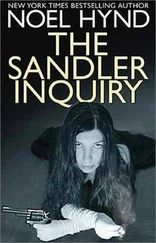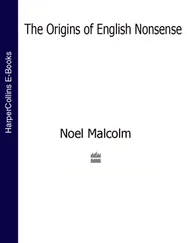Equality of opportunity to come to the university is secondary. The matters that concern both dons and administrators are secondary. The need to mix classes, nationalities and races together is secondary. The agonies and gaieties of student life are secondary. So are the rules, customs, pay and promotion of the academic staff and their debates on changing the curricula or procuring facilities for research. Even the awakening of a sense of beauty or the life-giving shock of new experience, or the pursuit of goodness itself – all these are secondary to the cultivation, training and exercise of the intellect. Universities should hold up for admiration the intellectual life. The most precious gift they have to offer is to live and work among books or in laboratories and to enable the young to see those rare scholars who have put on one side the world of material success, both in and outside the university, in order to study with single-minded devotion some topic because that above all seems important to them. A university is dead if the dons cannot in some way communicate to the students the struggle – and the disappointments as well as the triumphs in that struggle – to produce out of the chaos of human experience some grain of order won by the intellect. That is the end to which all the arrangements of the university should be directed.
I still believe that this is the principle that should govern Oxford and Cambridge and our élite universities.
CHAPTER ONE The Dons Create an Intellectual Aristocracy
The word ‘don’ carries many meanings, quite a number of them ironical. Some use it loosely to mean anyone who holds a post at a university, but well into the twentieth century it meant something more precise. ‘Don’ did not immediately suggest a creative scholar or a professeur of a particular subject, still less a privatdozent . A don was not expected to be an intellectual nor yet a man with a passion for general ideas. No: essentially he was a teacher and a fellow of an Oxford or Cambridge college; a teacher who stood in a peculiar relation to his pupils in that they came to his rooms individually each week and were taught by him personally. And since these pupils were men of his own college, his first allegiance was not to the university but to his college – to the close-knit society whose members had elected him. To the other fellows he was bound by ties of special loyalty and affection – sometimes, of course, by the no less binding ties of enmity and loathing which led to feuds and vendettas within the society,
It was only in late Victorian days that election to fellowships and university posts at Oxford and Cambridge began to be made on merit; and even then, merit could be determined by numbers of tests which were by no means all strictly academic. Was he, it could be asked, a good college man, sociable, willing to share in due course in the administration of the college, a potential bursar, tutor or dean? Was he a man of character as well as intellect, for he was educating the next generation who were to be the clergymen, statesmen and gentlemen of England?
In the early years of the nineteenth century before the ancient universities were reformed everything depended on patronage and few were ashamed to admit it. ‘I don’t know what we’re coming to,’ said Canon Barnes of Christ Church in the 1830s. ‘I’ve given Studentships to my sons, and to my nephews, and to my nephew’s children, and there are no more of my family left. I shall have to give them by merit one of these days.’ An old fellow of Merton was urged to award a fellowship to the candidate who had done best in the examinations. ‘Sir, I came here to vote for my old friend’s son, and vote for him I shall, whatever the examiners may say.’ To appoint by merit had echoes of the French Revolution. Had not Napoleon declared that every soldier carried a marshal’s baton in his knapsack, and look what ruffians Junot, Augereau and Ney were. Wellington per contra defended the system of officers in the army purchasing their commissions since, as gentlemen of England, they could be depended upon to be loyal as well as brave. Patronage was the passport to getting on in life. The venerable Dr Routh, President of Magdalen, who died in 1854 in his hundredth year, was in no doubt: ‘Take my advice, sir,’ he said to an undergraduate destined for Parliament; ‘choose some powerful patron, sir, and stick to him – stick to him always, sir, that is the only way.’ *Today it is not the only way. Men and women can rise on their own merits; but, if they are honest and reflect, how many will admit that someone – a friend of their family, a teacher skilled in writing testimonials or an employer or senior colleague who took a shine to them – gave them their chance?
In the ancient universities, in which the majority of fellows were clergymen, patronage affected professorships, canonries and country livings to which, if a fellow decided to marry, he could be appointed. In those days politics were more concerned with religion, and which prime minister was in office mattered because patronage was often in his gift. Readers of Trollope’s Barchester Towers will remember how the fall of the Conservative ministry dashed Archdeacon Grantly’s hopes of being made bishop and the preferment went to Dr Proudie. Tories could be expected to appoint High Churchmen, the Whigs to prefer liberals or what came to be called Broad Churchmen. But it was not as simple as that. How staunch a Protestant was a candidate? Was he stalwart against Catholic Emancipation? Routh was a High Churchman and the only head of a college to support John Henry Newman when Newman declared that Anglican beliefs were not inconsistent with Roman dogma, but he opposed Sir Robert Peel when Peel stood for the chancellorship of Oxford because Peel had finally brought himself to vote for Catholic Emancipation. *
What kind of don did this system of patronage throw up? Writing at the end of the nineteenth century William Tuckwell, a fellow of New College, thought they fell into four categories: cosmopolitan, ornamental, mere – and learned. The cosmopolitan don, intelligent but worldly, would be found in London as often as Oxford, seeing that the political interests of his friends at Westminster were reflected in elections to posts in Oxford and pari passu that patronage by cabinet ministers flowed into the right channels in the university. The ornamental don held university offices. He became a proctor and looked forward to offers of succulent benefices in the Church. He was therefore so cushioned by genial company and emoluments that further effort on his part was not required and he added nothing to learning. Preferment in the Church was what occupied his mind. But if he failed to get it he might die as senior fellow of his college, renowned for his nose for a vintage. Or he became an eccentric whom younger fellows boasted of having known.
The mere don referred to the bulk of the fellows, tutors who took the undergraduates in their college through Latin and Greek texts, up in arms at any attempt by the professors to deflect their pupils to attend professorial lectures. A mere don might well be voted in as head of a house, the compromise candidate when the supporters of the two abler rivals produced a deadlock by their intransigence. He would then preside ‘with a late-married wife as uncouth and uneducated as he … respecting no man in the University and respected by no man out of it’. There were indeed some roughnecks among the heads or others, such as the Rector of Lincoln, Edward Tatham, a stickler for Anglican orthodoxy and hater of dissenters, whose violence of language did his cause more harm than good. In a two-and-a-half-hour sermon he declared that he wished ‘all the Jarman critics at the bottom of the Jarman Ocean’. Yet there were fine heads of houses, among them Tatham’s opponent, Cyril Jackson, the Dean of Christ Church, Richard Jenkyns of Balliol and later the liberal reformer Francis Jeune of Pembroke.
Читать дальше












